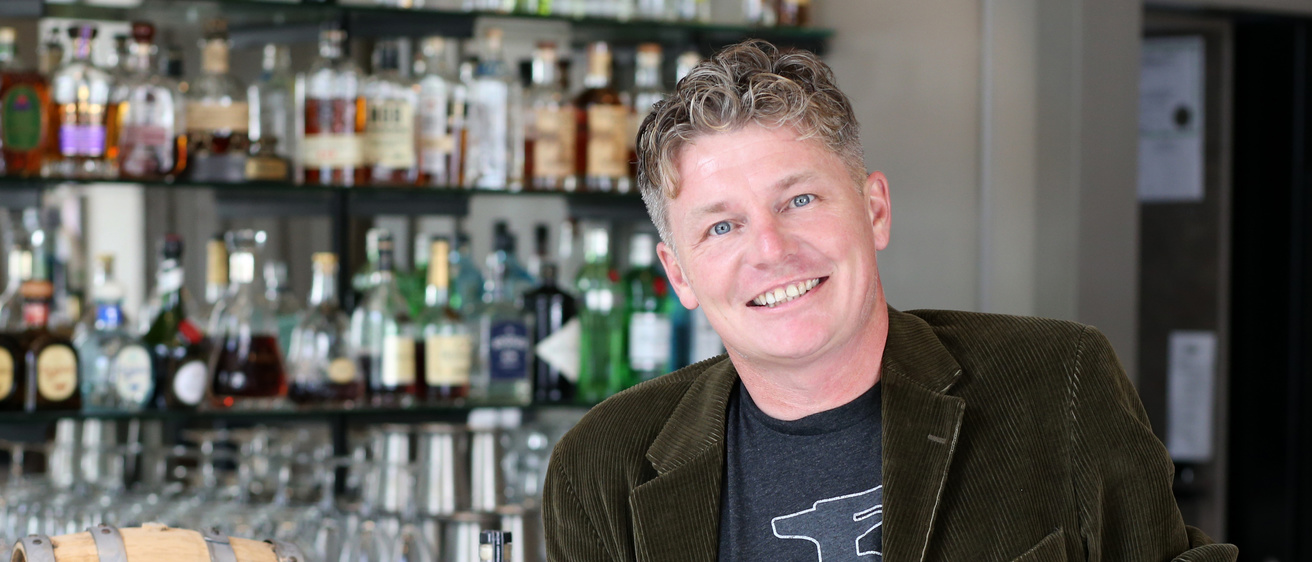
Whether it is a tornado, a flood, or a global pandemic, Midwestern neighborliness is always a constant. In mid-March when it felt like the whole world was shutting down, certain everyday commodities shot up in demand, including toilet paper and hand sanitizer.
Seeing the intense need, Scott Bush (BBA96) and his team at Foundry Distilling Co. just wanted to do something to help. They decided to explore how they could divert its lucrative distilling operation into creating hand sanitizer for the Des Moines-area community.
“It’s easy to forget how much anxiety folks were feeling when the media started to really focus on COVID,” recalled Bush.
“One of our distillers is a trained chemist. I asked him if he could use some of our alcohol to make hand sanitizer. He did some research and tinkered with it, and we proceeded to give it away for five straight weekends.”
The response was overwhelming. Weekend after weekend a massive parade of cars lined up for the sanitizer, which was dispensed into any container that customer brought with them.
Crises can open opportunities, said Stephen Courtright (PhD12), director of Executive Education and Henry B. Tippie Professor of Management. “Oftentimes when you're doing change management, you start by introducing an opportunity gap to others. Crises like a pandemic introduce those gaps for you.” Foundry was willing to make a sacrifice to serve the common good—turning a luxury product served at a bar into a health and safety item sold at a grocery store—and that exercise in compassion allowed Bush to spot a gap and temporarily step into it.
“It’s accurate to say that when we first started making hand sanitizer, we weren't ever thinking about selling it. We just wanted to help our community.” Then Faraway approached Bush about distributing the product in their stores. Bush said they experienced a “back-to-school” moment like they were working out a case study in operations management. “We went from zero to bottling 50,000 bottles per day in a matter of days. Thinking back, it floors me how quickly we set up that system and got all of the inputs and the right people in place.”
The exercise had the added benefit of opening opportunities for part-time jobs to area bartenders and restaurant workers who suddenly found themselves unemployed. They ran production from March 31 until April 24 when the traditional market players caught up. “We’re not trying to compete with the Purells of the world. We did our duty and now we’re back to making great booze.”
“People did love our hand sanitizer though because it smells like good vodka,” smiled Bush.
This article first appeared in the Winter 2021 issue of Tippie Magazine as part of the feature story titled "Fearless: Tackling professional and personal challenges with the Hawkeye spirit." Read more Fearless stories here.
DYK: Tippie offers custom corporate leadership development programs through its Executive and Professional Education office. To learn more, visit our website.
